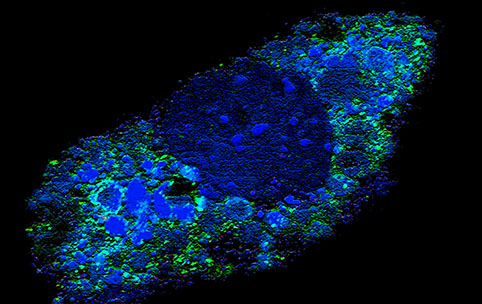Chlamydiae are Gram-negative obligate intracellular bacteria that infect mainly epithelial mucosa and have been implicated in a broad spectrum of diseases in mammals and birds. Chlamydia (C.) psittaci is the causative agent of psittacosis (notifiable disease). The zoonotic potential of this infection have been documented by different studies. Dendritic cells (DCs) are among the first immune cells encountered by chlamydia. Cytotoxic CD8+ T cells primed by antigen presentation of infected DCs play an important role in the immune response against the bacterial pathogen. However, the mechanism by which chlamydial antigens are processed and presented by MHC molecules is only poorly understood.
In contrast to chlamydia, coxiella can survive in acidic autophagic compartments. Coxiella (C.) burnetii is the causative agent of Q-fever, a notifiable zoonosis. We are interested to investigate the influence of coxiella on cell autonomous defense of infected DCs as well as the immune subversion of MHC-mediated antigen processing and presentation.
In addition to DCs, natural killer cells (NKs) are also involved in the early reaction against chlamydia and coxiella. Therefore, the functional interplay of these two cell types builds another important focus of our research.


